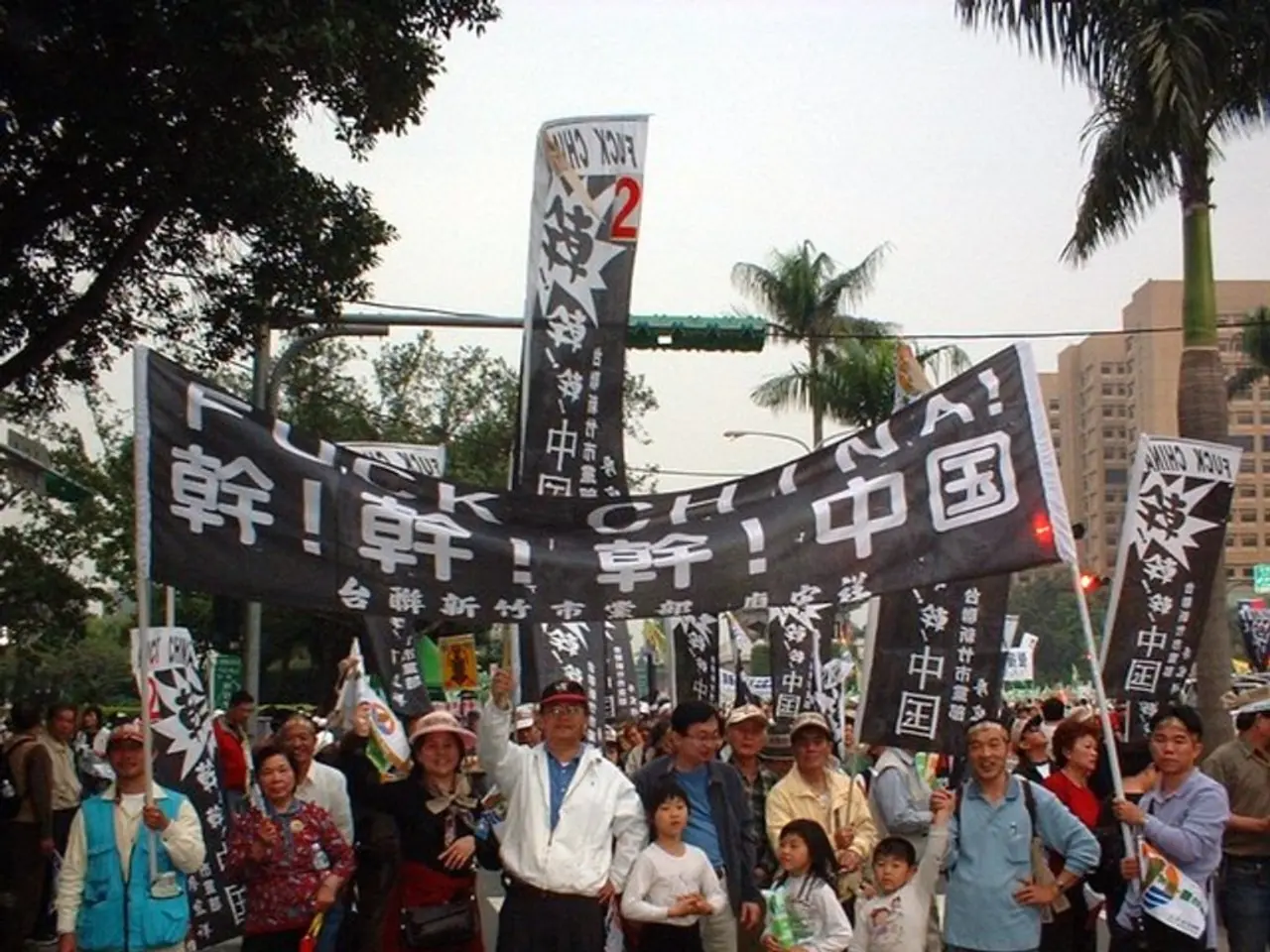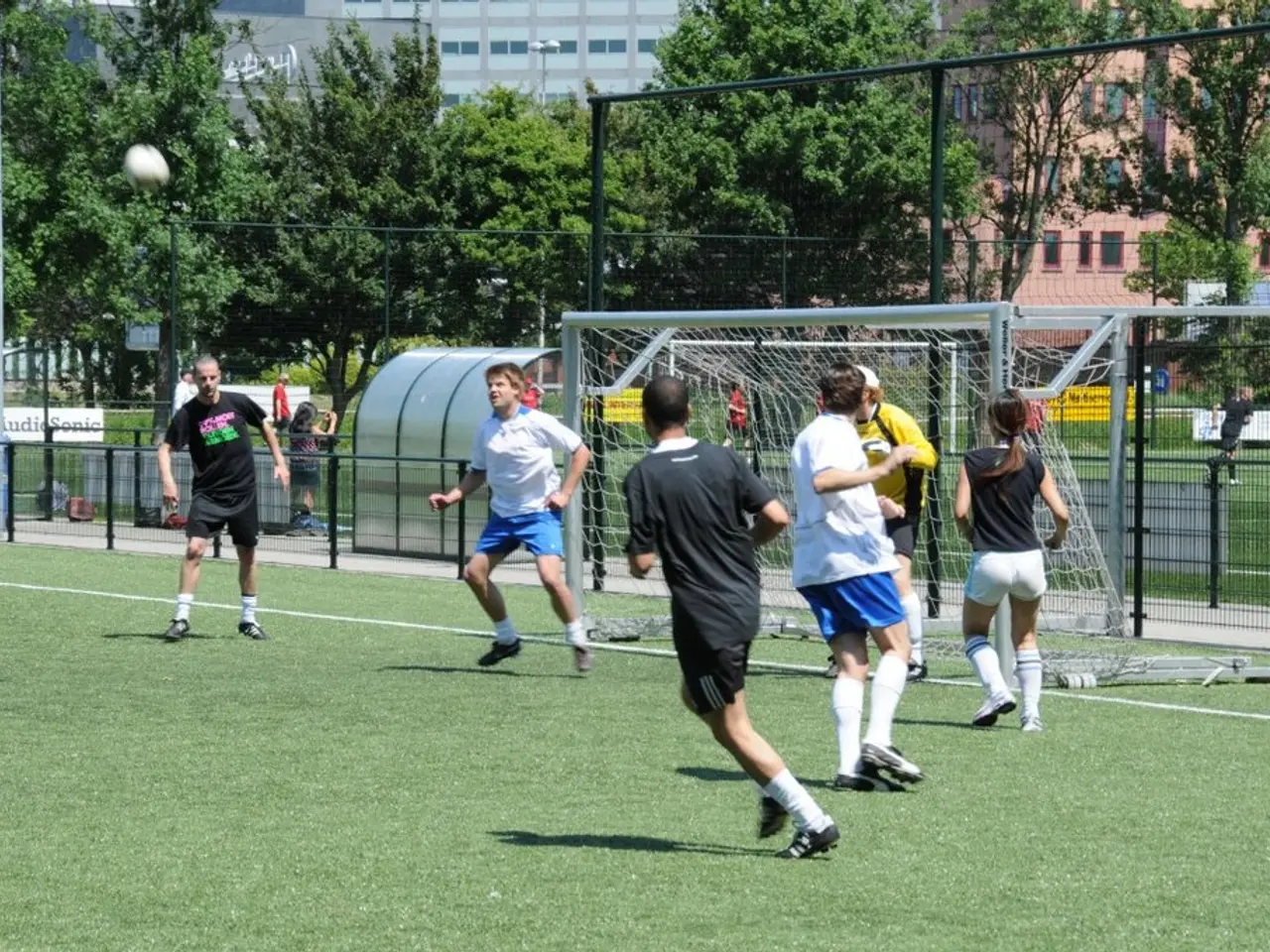Historic Turnout at Banned Pride Parade in Budapest Sparks Backlash and Support
Over 200,000 demonstrators overpower law enforcement in Budapest
Budapest's streets were painted with rainbow colors and roaring with cheers as hundreds of thousands of people stormed the city for the Pride parade on June 28, 2025 - a parade that was officially banned by Prime Minister Viktor Orbán. Despite the prohibition, the Hungarian police could only manage to arrest two individuals, leaving the event swarming with jubilant participants.
In an ill-prepared reaction, the police checked only 36 attendees and declared that "the Budapest Pride took place in spite of being banned by a decision of the Budapest Police Prefecture." However, organizers Pride President Viktoria Radványi estimated that a mind-blowing 180,000 to 200,000 people took part, making it the largest Pride demonstration in the 30-year history of the event - evidence of a defiant public refusing to be cowed.
Among the six counter-demonstrations that emerged were groups primarily affiliated with the far-right scene. But the police were focused on monitoring the CSD march, announcing that they faced a challenging task. Radványi addressed the thronging masses at the closing rally, saying, "We won't be stopped, we won't be intimidated, because we will always take to the streets."
Political scientist Zoltán Vásáry slammed the Fidesz party for its handling of the Pride parade on Free Europe/Radio Liberty. He criticized the government for creating an empowering symbol for the parade's opponents, asserting that both the LGBTQ+ community and those finding the authorities' behavior unacceptable were emboldened.
Budapest's mayor, Gergely Karácsony, publicly opposed the government's Pride ban from the beginning and pledged to make the parade an official celebration of the city. This defiant stance was met with police skepticism, but the event went on without a hitch. As Karácsony marched at the front of the march, he told the crowd, "You don't look like you've been banned. You've shown the bloated, hateful government the middle finger."
The 2021 legislation Tackling Child Prostitution, Pedophilia, and the Consumption of Pornography with Persons Depicting Children (also known as the "Child Protection Act") was invoked to ban the Pride parade due to the depiction and promotion of homosexuality and diverse gender identities to minors, punishable with fines, facial recognition to identify participants, and potential imprisonment for organizers.
However, the ban faced numerous legal challenges and widespread international support. Despite this, city authorities and civil society persisted in their determination to host the event, resulting in a historic success for the LGBTQ+ community and a powerful symbol of resistance against government repression.
Sources: ntv.de, mpa
- Budapest
- LGBTIQ
- Demonstrations
- Police
- Hungary
- Viktor Orbán
Insights from Enrichment Data:
The Hungarian government's efforts to ban the Pride parade were widely criticized as an attempt to suppress LGBTQ+ rights through the enactment of discriminatory laws. Despite these obstacles, the defiance and huge turnout at the event demonstrated a strong commitment to pushing back against government repression and upholding democratic principles. International figures and human rights advocates also demonstrated their support for the peaceful assembly and LGBTQ+ rights.
- The large turnout at the banned Pride parade in Budapest highlights the need for community policymakers to reconsider employment policies that cater to (and protect) the LGBTIQ community, as demonstrated by their commitment and resilience in the face of government repression.
- The ongoing controversy surrounding the Pride parade in Budapest underscores the importance of general-news coverage, particularly in politics, as it sheds light on human rights issues that require attention and support from both domestic and international communities.





